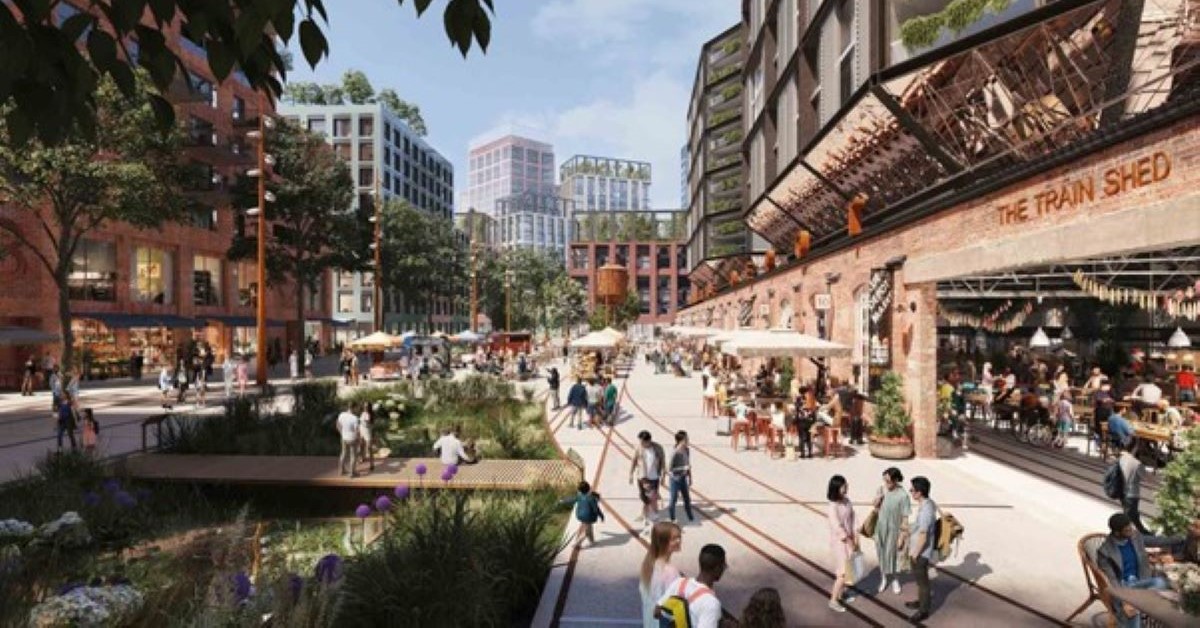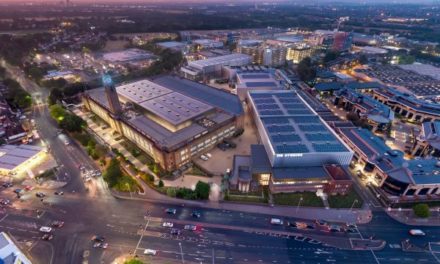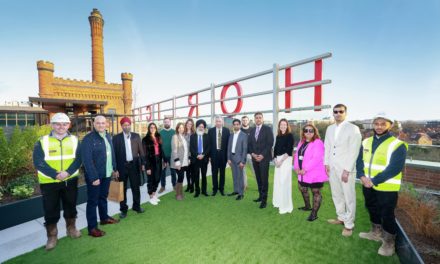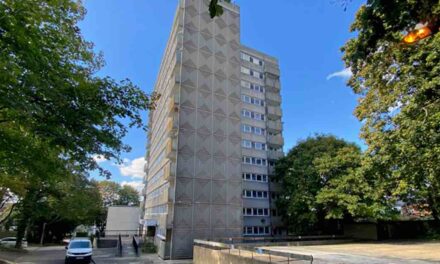The Earls Court Development Company (ECDC) has unveiled a draft master plan to deliver on their vision ‘to bring the wonder back to Earls Court’.
The ambitious redevelopment will see this long-neglected, largely derelict 40-acre site in Zone 1 London reinstated as a destination for entertainment, innovation and excitement.
Revealing plans to deliver up to 4,500 homes (targeting 35 per cent affordable across all tenures), all set within a landscape-led development which aims to go beyond net zero and become a climate-positive neighbourhood, Rob Heasman, the ceo of ECDC, commented:
“Like a London jigsaw missing its final piece, this 40-acre site is perhaps Central London’s most significant redevelopment opportunity. The site has an illustrious past which is a continual source of inspiration for us as we look towards the future.
We want to create a place which reinstates ‘wonder’ in this incredible part of London. We will help to create a more inclusive and equitable piece of city with homes for all incomes and stages of life and thousands of jobs from training to start-up to scale-up. The development will integrate culture and public realm throughout, responding to the number one stated desire from local people; to have green and open spaces across the site. We have an ambition to be a global exemplar of responsible, sustainable development, putting people’s health and well-being first.”
The aspiration is for the development to incorporate the first large-scale Zero Carbon energy-sharing network in the UK, enabling local people to benefit from cost-effective heat networks. Up to 15,000 jobs will be created, with the development becoming a research and development hub for green tech, attracting businesses that transform our future by responding to the climate crisis.
The master plan has been drafted following two years of discussion and engagement with local communities and stakeholders to understand the aspirations and priorities of those who already live and work in the area.
Heasman continued:
“Being based locally has given us the ability to get to know the communities in which we are based, to understand the experiences of people who live, work and go to school here. We have used that to inform and shape the draft masterplan concepts which we are now presenting.”
Only 40 per cent of the land has buildings to prioritise the streetscape and public open spaces. Landscaped piazzas, play space and public gardens at the entrances will connect through a network of pedestrianised streets and spaces to a park at the heart of the site. The central ‘Table’ park will be a unique destination repurposing part of the former Exhibition Centre structure, connecting those who live, work and visit Earls Court.
Earls Court was once a global showground for investment and ingenuity, but it was always a private and closed-off space with ticketed entrances. In recent years it has lain derelict; the Exhibition Centres closed in 2014 and were demolished in 2015 by the previous owners. Opening up the site with free access to all is a key priority.
The Earls Court Development Company have already brought early attractions to the site with the Underbelly Festival, the Lost Estate immersive theatre and the BBC Earth Experience featuring Seven Worlds One Planet narrated by Sir David Attenborough. A new Skills Centre will open on-site in the spring of 2023, beginning to offer training opportunities to local people, and the Centre will become a one-stop shop for future opportunities at Earls Court. The masterplan will continue to build on this, once again establishing Earls Court as a significant cultural and employment destination, bringing venues, events and pop-up space throughout the development.
Heasman added:
“We are acting now, bringing excitement and enterprise through our immediate site activations whilst also looking beyond the horizon to what future generations may need and aspire to. Above all, we are focusing on ensuring a masterplan which is deliverable and which will create a thriving part of the city now and in the long term. We are delighted to share how our plans are coming together. We look forward to continuing our extensive discussions with the community and our stakeholders as the plans progress.”
The impact of the closure of the Exhibition Centres on the local economy was drastic, with approximately £2bn per year lost in contributions to the UK economy. The plans will change this, bringing £6.5bn of private sector investment and delivering exceptional benefits to the local area and the London economy. Early economic projections include £ 1.2 billion per year Gross Value Added (GVA) to the economy, £37.2m per year of spending by workers to the local economy, and £40.5m per year generated in business rates.
The master plan will evolve throughout 2023, with a planning application due to be submitted by the end of the year. The first phase of development, comprising 1,300 homes, the park and vital east-west connections, will commence in 2025.
© London West (powered by ukpropertyforums.com).
Sign up to receive our weekly free journal, The Forum here.















